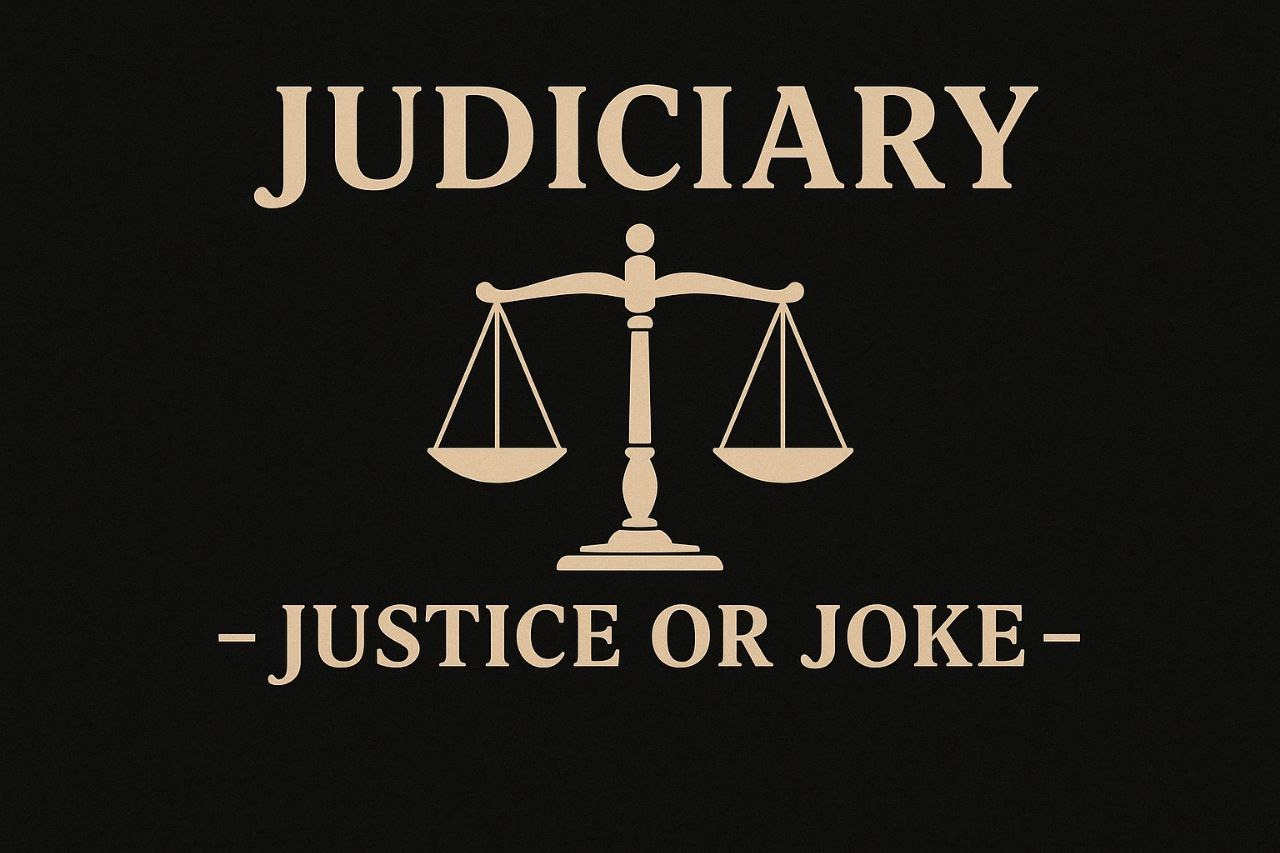The Role of Judges: Guardians of the Constitution, Not Commentators of the Moment

The Indian judiciary, a cornerstone of democracy, holds the immense responsibility of upholding the Constitution, ensuring justice, and preserving the rule of law. However, in recent years, concerns have been raised about instances of judicial overreach, where judges seemingly step beyond their mandate of interpreting laws and begin commenting on issues far removed from the facts and evidence before them. While judges represent the judiciary, they are not synonymous with the institution itself. Their duty is not to opine on everything under the sun but to interpret the Constitution and adjudicate based on presented material.
Judges Are Not the Courts: A Fundamental Clarification
It is essential to distinguish between the judiciary as an institution and individual judges. Courts, as institutions, function based on constitutional and legal frameworks. Judges, while they embody this system, are representatives entrusted to function within those boundaries. The moment a judge offers personal opinions, especially from the bench, it blurs the line between institutional responsibility and individual expression.
This is why judicial restraint is vital. The public looks up to judges not for their personal philosophies or opinions but for their impartial application of the law.
An Example of Judicial Overreach: Remarks in the Nupur Sharma Case
A particularly illustrative example of judicial overreach was witnessed during the hearing of BJP spokesperson Nupur Sharma’s petition in 2022. Sharma had approached the Supreme Court seeking the clubbing of multiple FIRs filed across the country against her for making factual comments based on the Quran and its Hadiths during a televised debate.
Rather than limiting themselves to the legal issues at hand, such as whether multiple FIRs for the same alleged offense could be consolidated, the judges made sweeping oral remarks. They went so far as to hold her “single-handedly responsible” for the country’s communal atmosphere and even alluded to the brutal Udaipur killing that followed the controversy. These comments, though not part of the official judgment, sparked a media storm and painted Sharma in a prejudicial light, raising serious concerns about the neutrality expected from the highest court.
Why Such Remarks Are Problematic
1. Not Binding, Yet Widely Broadcast: Oral comments made during hearings carry no legal standing, but they are often reported out of context and interpreted as judicial opinion by the public.
2. Prejudicing Future Proceedings: When senior judges make remarks before a trial has even begun, it could severely impact the fairness of any future judicial process.
3. Undermining Judicial Integrity: These unnecessary digressions risk turning the judiciary into a platform for personal or moral commentary rather than a bastion of constitutional interpretation.
4. No Accountability for Oral Comments: Unlike politicians, judges are not answerable for their off-the-cuff comments. Yet these remarks often have serious real-world implications, especially when made in high-profile cases.
Other Instances Reflecting Judicial Overreach
The NJAC Verdict (2015): The judiciary struck down the National Judicial Appointments Commission Act, effectively overturning a constitutional amendment passed unanimously by Parliament. Critics argued this was an act of protecting turf under the guise of constitutional guardianship.
Environment-Related Bans: The Supreme Court and High Courts have, on occasion, imposed sweeping bans on firecrackers or old diesel vehicles without considering the broader policy and socioeconomic implications, decisions many argue should be left to the legislature or executive.
The Principle of Judicial Restraint
Judicial restraint is the cornerstone of a healthy democracy. It is not only about what judges can say or do, but about what they should avoid doing. The judiciary must remember that its power stems from its credibility, built on impartiality, dignity, and silence where necessary.
Judges are the custodians of the Constitution, not commentators on public sentiment or political developments. Their courtroom is a forum of justice, not a pulpit for ideology or emotion. The judiciary’s legitimacy comes from its adherence to facts, evidence, and constitutional principles, not from issuing unrecorded, unaccountable remarks during proceedings.
In times when public discourse is volatile and deeply polarized, the judiciary must remain the voice of reason, not reaction. Upholding this sacred responsibility requires not just legal wisdom, but also humility and restraint.
"When judges trade silence for speculation, they risk turning the temple of justice into a theatre of opinion. The Constitution deserves interpretation, not improvisation." ~ Adarsh Singh
Wed Apr 23, 2025
